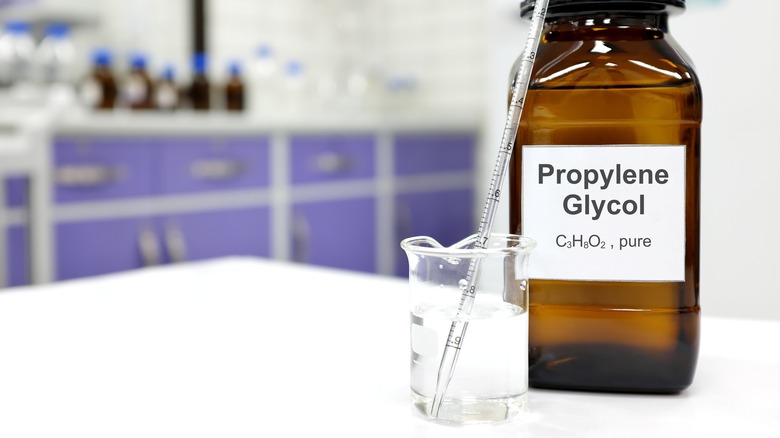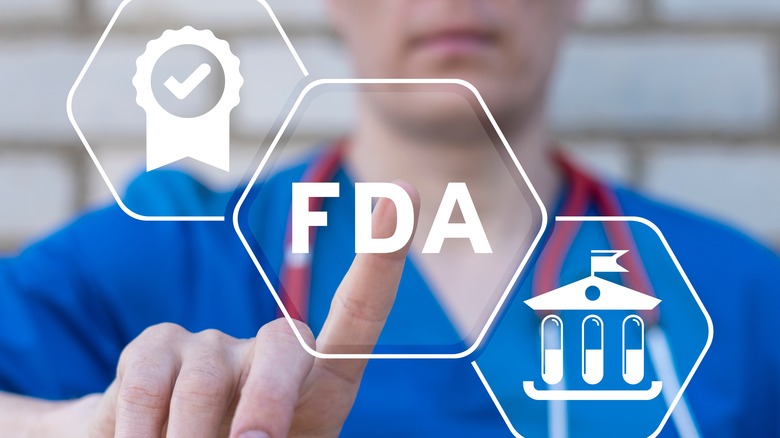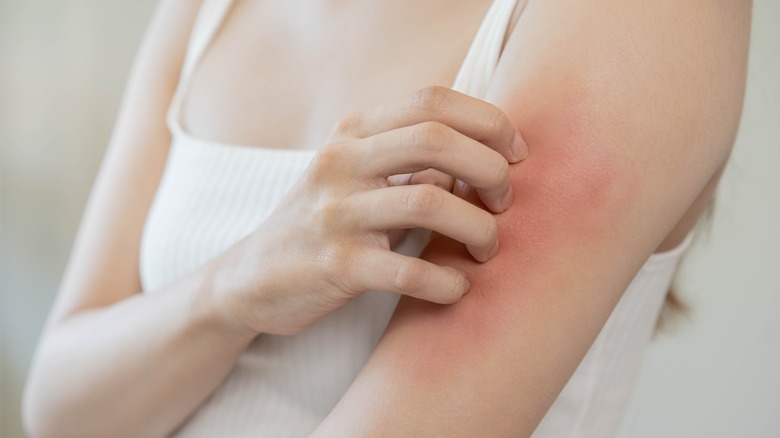Is It Safe To Add Propylene Glycol To Your Food?
Propylene glycol is a clear and odorless chemical compound that has several different uses, including the manufacturing of food and personal care products. In the cosmetics industry, it's used as a moisturizing agent in skincare products (via Healthline). According to a 2004 article published on PubChem, propylene glycol is used as a solvent in the pharmaceutical industry to dissolve active ingredients in medications like phenols, corticosteroids, and vitamins. In the food industry, propylene glycol is often used as a humectant to help preserve moisture and prevent products from drying out. On top of this, it's used as a solvent to dissolve flavors and colors in products, per Healthline.
Despite the widely accepted use in food, pharmaceutical, and cosmetic products, there is an ongoing debate about the safety and potential health risks of propylene glycol in food — whether or not the chemical is safe is still up for debate.
How safe is propylene glycol in food?
According to the Centers for Disease Control and Prevention (CDC), propylene glycol has been approved for use by regulatory agencies such as the U.S. Food and Drug Administration (FDA). This means it is generally considered to be safe for use in food and personal care products. The safety of propylene glycol in food has been reviewed by other regulatory agencies as well, such as the European Food Safety Authority (EFSA), which has also concluded that propylene glycol is safe for use in food, per a 2018 article published in the EFSA journal.
According to WebMD, the main concern about propylene glycol in food is that it may be toxic if consumed in large amounts and might lead to kidney damage; however, toxicity is rare. The amounts of propylene glycol that are typically found in food are much lower than the amount in studies where toxic levels were present, says Healthline.
Can propylene glycol can an allergic reaction?
While propylene glycol is generally considered to be safe, it is always important to use caution and read labels carefully when using products containing this chemical. Some people may be sensitive or allergic to propylene glycol, according to WebMD. Cases of systemic dermatitis have been reported in people consuming foods and medications containing this substance (via Healthline).
If you have any concerns, it is always a good idea to talk to a healthcare professional for more information and advice. Also, be aware that the chemical may be listed under different names on food ingredient labels, so you may need to look for other names, such as 1,2-dihydroxypropane, 1,2-propanediol, and trimethyl glycol to identify products that contain propylene glycol. It's also important to note that propylene glycol is used in many types of food and may be difficult to completely avoid. According to Healthline, propylene glycol is mostly found in highly processed foods so it might be safer to consume fresh and whole foods or as advised by your doctor.



